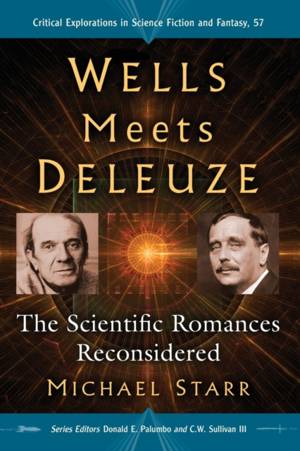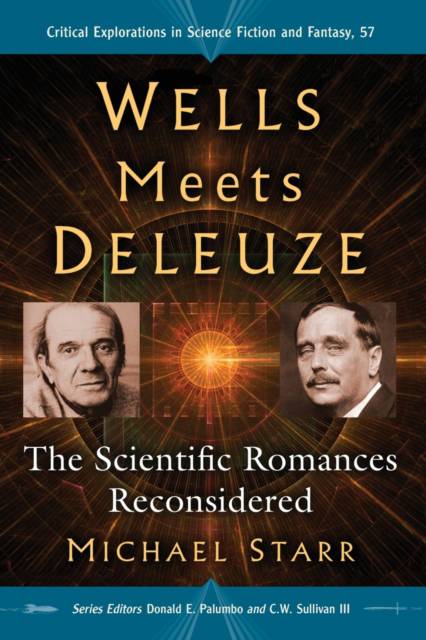
- Retrait gratuit dans votre magasin Club
- 7.000.000 titres dans notre catalogue
- Payer en toute sécurité
- Toujours un magasin près de chez vous
- Retrait gratuit dans votre magasin Club
- 7.000.0000 titres dans notre catalogue
- Payer en toute sécurité
- Toujours un magasin près de chez vous
Description
The writings of H.G. Wells have had a profound influence on literary and cinematic depictions of the present and the possible future, and modern science fiction continues to be indebted to his "scientific romances," such as The Time Machine, The War of the Worlds and The Island of Doctor Moreau. Interpreted and adapted for more than a century, Wells's texts have resisted easy categorization and are perennial subjects for emerging critical and theoretical perspectives. The author examines Wells's works through the post-structuralist philosophy of Gilles Deleuze. Via this critical perspective, concepts now synonymous with science fiction--such as time travel, alien invasion and transhumanism--demonstrate the intrinsic relevance of Wells to the genre and contemporary thought.
Spécifications
Parties prenantes
- Auteur(s) :
- Editeur:
Contenu
- Nombre de pages :
- 220
- Langue:
- Anglais
- Collection :
- Tome:
- n° 57
Caractéristiques
- EAN:
- 9781476668352
- Date de parution :
- 31-05-17
- Format:
- Livre broché
- Format numérique:
- Trade paperback (VS)
- Dimensions :
- 150 mm x 226 mm
- Poids :
- 317 g







